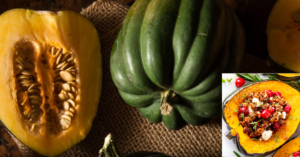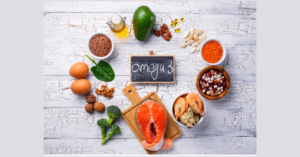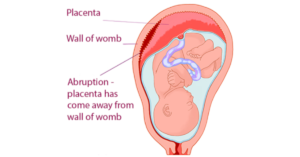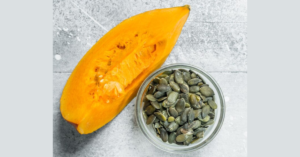Pregnancy is a wonderful time in life, but women have to be very careful about their diet. Pregnant women have questions about every food item. One of the most common questions is, “Can You Eat Pineapples While Pregnant?” Pineapple is a tropical fruit that contains a lot of nutrients. It tastes sweet and slightly sour. But due to the rumors related to it, women have a lot of doubts in their mind. In this article, we will know all the nutrients, benefits, risks, facts and all about pineapple.
Table of Contents
Nutritional Benefits of Pineapple
Pineapple is a fruit that can be considered a treasure trove of nutrition. If eaten in the right quantity, it will prove to be very beneficial for pregnant women. Let’s see why pineapple is so beneficial:
1. Vitamin C
During pregnancy, the immunity of women is very weak, for which vitamins are very important. This vitamin forms collagen, which is very helpful in the bones, skin and cartilage of the baby.
2. Manganese
Manganese is a very important mineral for keeping bones healthy and preventing oxidative stress, and pineapples are rich in it.
3. Dietary Fiber
The digestive system needs fiber to function properly. Because constipation is a common problem during pregnancy, the fiber in pineapple is very beneficial for this.
4. Antioxidants
The antioxidants found in pineapple play a huge role in protecting against harmful radicals and reducing inflammation. These antioxidants also improve overall health.
5. Natural Sugars
Pregnancy often leaves women feeling weak, so pineapple is a great snack to get instant energy without any extra calories.
Myths and Misconceptions about Eating Pineapple During Pregnancy
There are many myths among women about what to eat and what not to eat during pregnancy. But one of the most common myths is that pineapple should not be eaten because it contains bromelain. This is because bromelain is an enzyme that softens the cervix and then provokes labor which can lead to miscarriage.
The truth is completely opposite, as regular consumption of pineapple would contain too little bromelain to cause a softening of the cervix.
Scientific research has shown that eating pineapple in appropriate quantities maintains the overall health of a pregnant woman.
Is Pineapple Safe During All Pregnancy Stages?
It is very important to know how much pineapple should be eaten at what stage of pregnancy. Here are the details:
First Trimester
Pineapple has many wonderful nutrients, but it causes acidity which can lead to heartburn and nausea. Therefore, it should be eaten in very small quantities during the early months of pregnancy. It should be avoided if you have morning sickness.

Second Trimester
Your body is very stable during this time. So the risks associated with bromelain can be ignored. This is a safe time to eat pineapple in regular quantities.
Third Trimester
While there is no solid proof that pineapple softens the cervix, which can provoke labor, some people do believe so. So it is better to consult your gynecologist at this stage before eating pineapple.
How Much Pineapple Is Safe to Eat While Pregnant?
Eating anything in moderation is beneficial. Normally, one cup of fresh pineapple is considered safe for pregnant women. But eating pineapple in large quantities can cause digestive problems due to the fiber present in it and can also cause acidity.
Bromelain in Pineapple: A Concern for Pregnant Women?
What Is Bromelain?
Bromelain is a group of enzymes found in the stem and juice of pineapples. during pregnancy, to reduce inflammation and to help with digestion, Bromelain is used as a supplement.
Does Bromelain Pose Risks in Pregnancy?
If bromelain supplements are consumed in large amounts, they may thin the blood or can cause uterine contractions. However, the amount of bromelain in a fresh pineapple is so low that consuming it is unlikely to pose any risk.
Best Ways to Include Pineapple in Your Diet During Pregnancy
Pineapple can be a delicious addition to your diet. Here are some tips:
- Fresh Pineapple Chunks: Enjoy as a snack or add to a fruit salad.
- Pineapple Smoothie: Blend with yogurt and a banana for a refreshing treat.
- Grilled Pineapple: A sweet and tangy side dish for dinner.
- Cooked Dishes: Include pineapple into stir-fries or baked goods for a tropical flavor.

Potential Risks of Overconsumption
Eating Pineapple in large quantity can lead to:
- Heartburn: Its acidity can increase acid reflux, a common complaint during pregnancy.
- Digestive Issues: Overeating of pineapple can cause diarrhea or bloating, due to fiber present in it.
- Allergic Reactions: Rarely, pineapple can cause itching, swelling, or breathlessness. If this happens, consult a doctor immediately.
Alternatives to Pineapple for Pregnant Women
If you’re looking for similar nutrients, try these fruits:
- Mango: Great source of vitamin A and C.
- Papaya: Packed with antioxidants and safe to eat in moderate quantity.
- Citrus Fruits: Oranges and grapefruits offers plenty of vitamin C.
Conclusion
Eating pineapple in regular quantities during pregnancy is a very safe and nutritious food. It has many benefits, such as it boosts immunity and also helps in digestion. Although there are many rumors among women about eating it, but scientific research shows that there is no risk to avoid it at all. Consult your personal doctor to determine the regular quantity of this tropical fruit according to your body.
FAQ's on Eating Pineapple While Pregnant
No, moderate consumption won’t cause labor. The bromelain content is too low to have such an effect.
Yes, but consume it in small amounts to avoid digestive discomfort.
About one cup a day is sufficient.
There’s no evidence to suggest that moderate pineapple consumption leads to miscarriage.
Watch for symptoms like itching, swelling, or trouble breathing.
Yes, but it may have added sugars and fewer nutrients compared to fresh pineapple.

10 Proven Benefits of Bananas for Health and Well-being
Bananas are known for their natural sweetness, ease of peeling and rich nutrition. This makes them one of the most commonly consumed fruits in the world. Though bananas originated in Southeast Asia, they are now

Disease X: The Next Pandemic?
Emerging infectious diseases pose one of the greatest threats to human health and global stability. One of them, “Disease X” has intrigued scientists and WHO, as it represents the potential for an unknown disease to

The Remarkable Benefits of Eating Acorn Squash in Winter
Acorn squash has all the qualities that make it special. Winter calls for warmth, comfort, and nutrition, and acorn squash provides all of these. This vegetable is not just delicious but also has a lot

Omega-3 Fatty Acids
Omega-3 fatty acids play a very important role in the nutrients needed to maintain overall health. As people are getting to know about it, its popularity is increasing day-by-day. These fats play a very important



